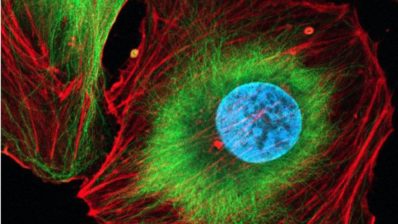Researchers at the Centre for Genomic Regulation (CRG) in collaboration with Columbia University (New York), have found a protein that could play a key role in reprogramming blood cells to hematopoietic stem cells (HSC), as well as in the expansion of the latter, vital for many treatments.
The team has used an algorithm to identify candidate proteins, and out of the eight they found, only the one resulting from the BAZ2B gene has multiplied the number of HSCs from umbilical cord blood.
“Yielding more of these live-saving stem cells will benefit a variety of different patients in the long-term”
Pia Cosma, group leader at CRG and leading author
These results could lead to the end of the shortage of stem cells, thus breaking down one of the most limiting barriers to the development of powerful stem cell treatments.
Arumugam K. et al. The Master Regulator Protein BAZ2B Can Reprogram Human Hematopoietic Lineage-Committed Progenitors into a Multipotent State. Cell Reports vol 33, issue 10, December 08, 2020






